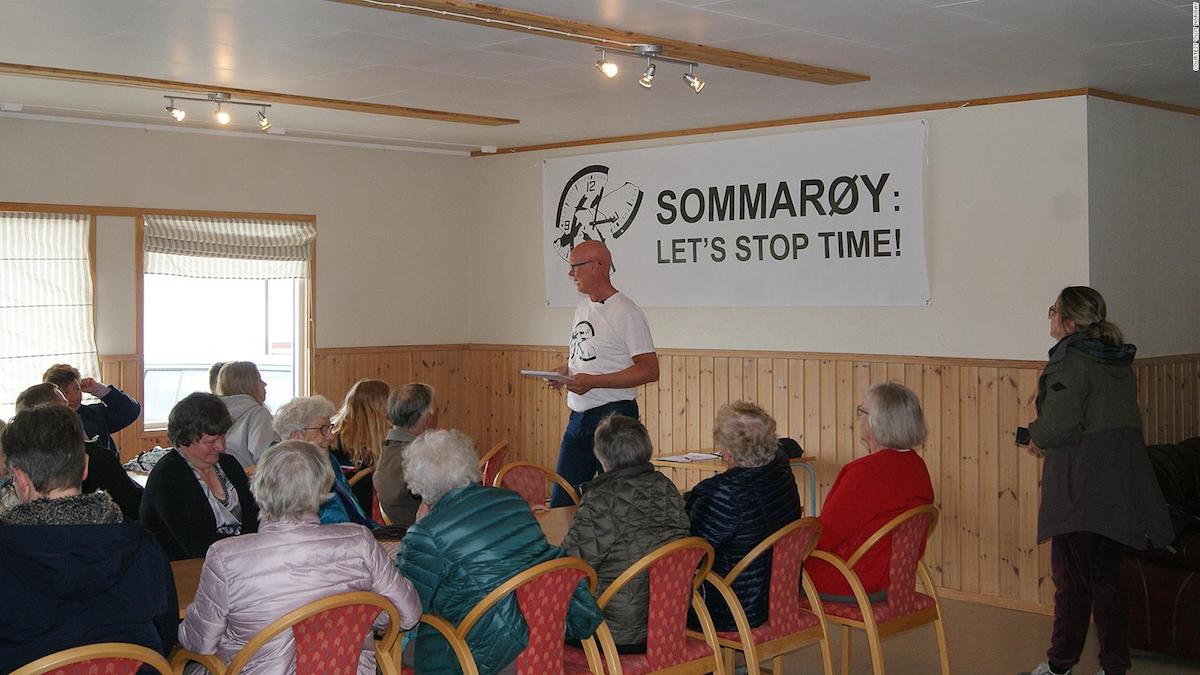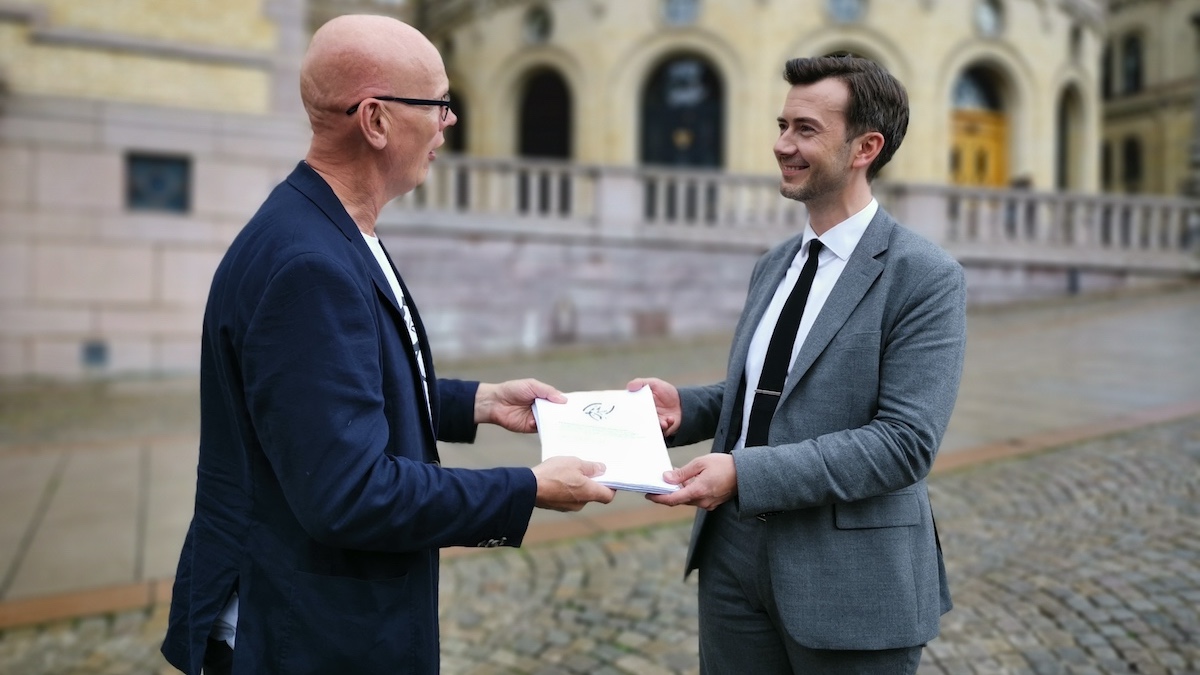Norwegian island’s serious-but-not-literal ‘time-free zone’ bid generates more attention than expected
Sommerøya still wants to be the island that forgot time, but, for now, it is the island that duped the press.

It sounded too good to be true. And, in fact, it was: Sommerøya, a Norwegian island north of the Arctic Circle, will not, as was reported in scores of articles in June, be abolishing time.
To be sure, there is actually a grass-roots effort to turn the island into a “time-free zone,” and its leader, Kjell-Ove Hveding, really did hand over the signatures of some 40 of the island’s 350 residents to their representative in the Storting, the national assembly, on June 14.
However, the signatures did not stay in Oslo. Nor were they, as purported, collected at a town hall meeting organized by the Let’s Stop Time campaign. A meeting was held on June 13, as pictures clearly show. But it was organised by Innovasjon Norge, which, as part of its job profiling Norway as a travel destination, had gathered the islanders to tell them about its plans to use their idea as the basis of an “unconventional” marketing campaign that would involve PR agencies in Oslo and London. Also in on the joke was Visit Norway, which, like Innovasjon Norge, is publicly funded.
From the get-go, tourism professionals suggested that the plan probably had an “element of marketing,” but noted that, even if the idea of eliminating time couldn’t be taken literally, it should be taken seriously.
Other experts admitted they could understand why it might feel pointless to live by the clock when much of the year is either constantly dark or constantly light, but considered any effort to eliminate them entirely to be “wishful overreaction.”
Then there was also the problem of how to interact with neighboring communities, showing up on time at the airport or watching the evening news. When it comes to time, Sommerøya was going to have trouble being an island.
As soon as the media, primarily NRK, a broadcaster, began digging, Innovasjon Norge admitted the whole thing had been a “stunt, derived by creative minds,” and issued a formal apology for failing to make clear that it had co-opted an existing idea for use in a marketing campaign it had funded.
Innovasjon Norge has taken information about the “time-free zone” off its website, but Bente Bratland Holm, a spokesperson, said the campaign had generated the attention they had hoped.
“Perhaps more,” she said.


